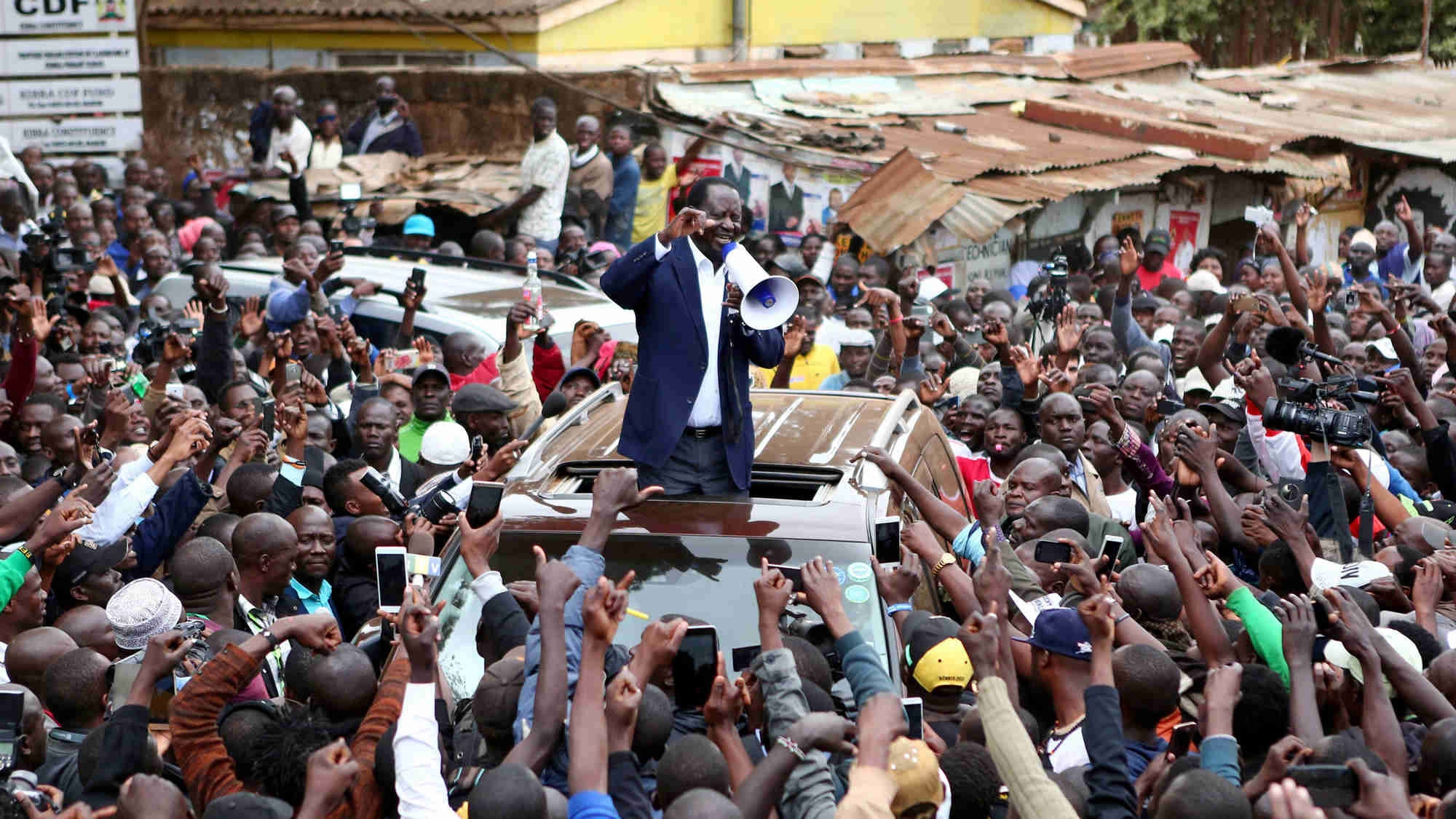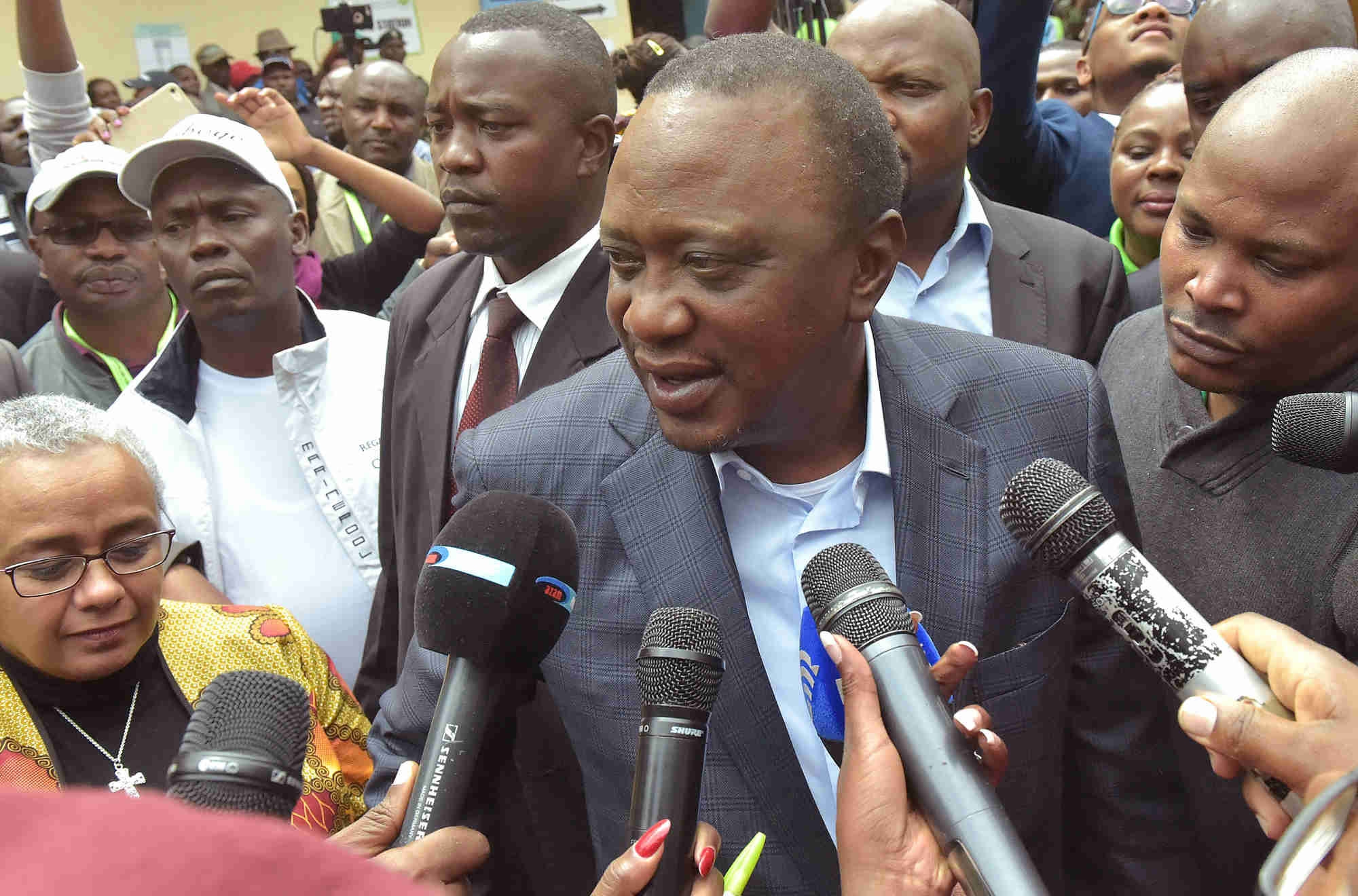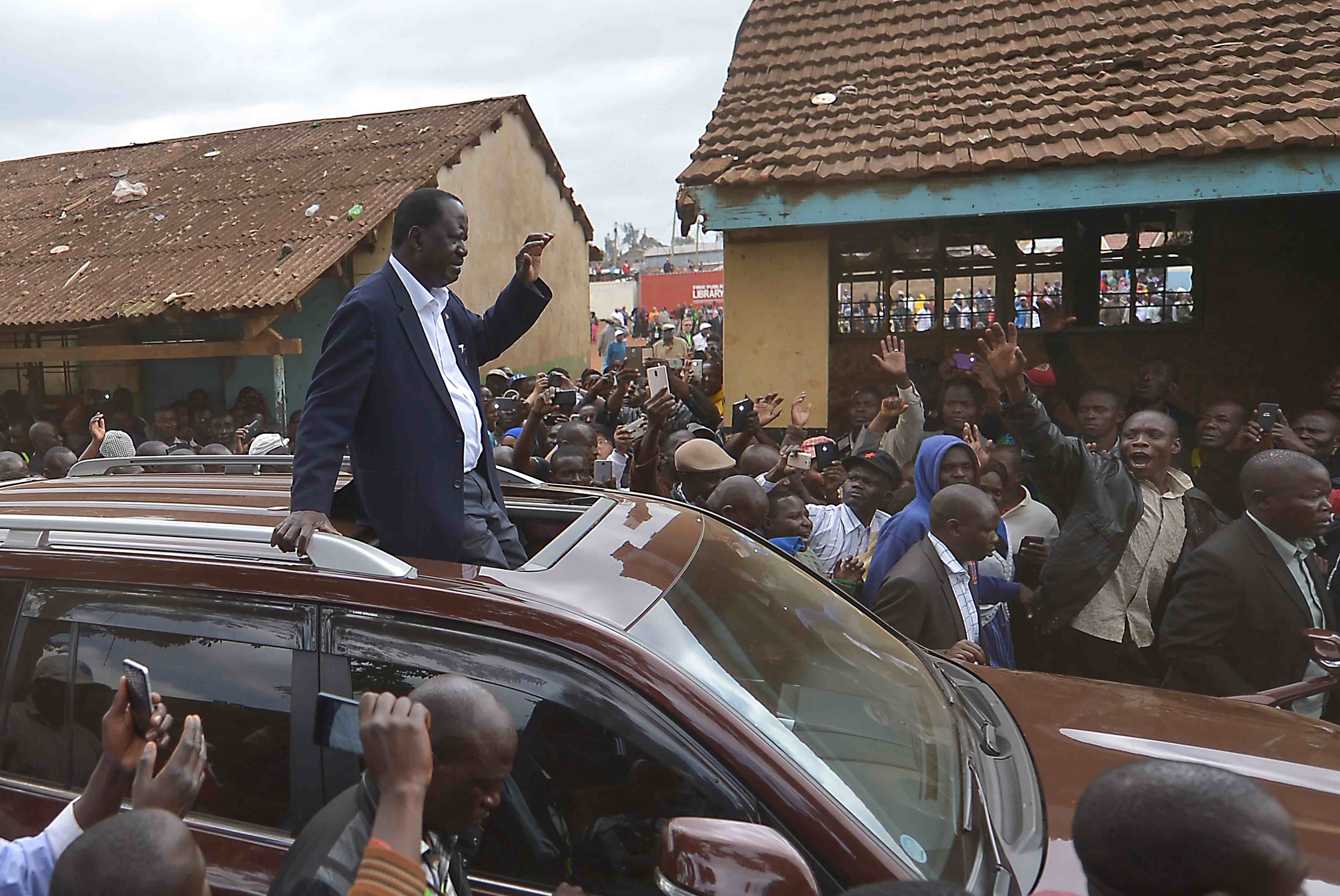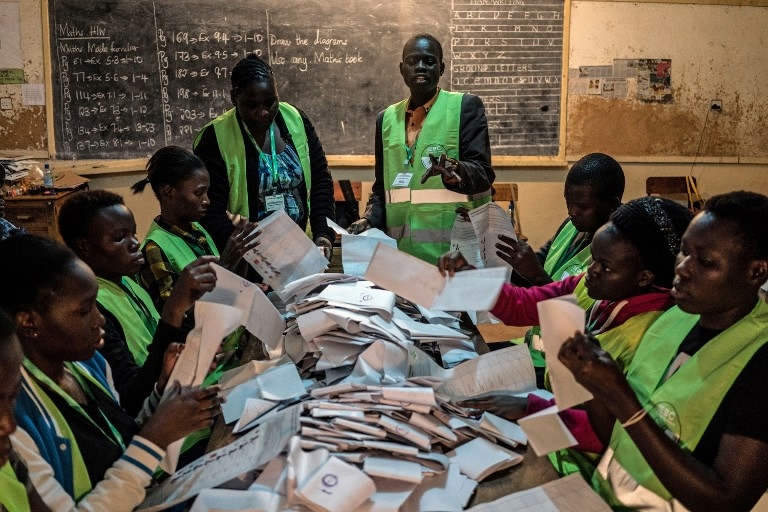
Politics
14:07, 09-Aug-2017
Kenya opposition rejects election results showing president in lead
CGTN

Kenya's president took an early lead as results from national polls rolled in Wednesday, the election board said, but the opposition dismissed the numbers as "fake" and said their own tally showed they were winning.
Tuesday's contest between President Uhuru Kenyatta, a wealthy 55-year-old businessman, and Raila Odinga, 72, a former political prisoner and self-described leftist, was a hard-fought election that stoked fears of possible violence.

Kenya 's President Uhuru Kenyatta speaks to the media after voting at a polling station during the August 8, 2017 presidential election in Gatundu, Kiambu County. /AFP Photo
Kenya 's President Uhuru Kenyatta speaks to the media after voting at a polling station during the August 8, 2017 presidential election in Gatundu, Kiambu County. /AFP Photo
Kenyatta was leading with 55 percent of the vote and Odinga had 44 percent at 3.00 a.m. Wednesday, the election commission website said, after nearly three-quarters of polling stations had reported results.
But Odinga angrily dismissed that tally as "fictitious ...fake" at a late-night press conference and said the results were a sham because they were not accompanied by scanned copies of forms that party observers in all polling stations should have signed to certify the results.
Kenyan law states where there is a discrepancy between a result on the website and the form, the result on the form will be considered final.

Kenya's opposition alliance, National Super Alliance (NASA) presidential candidate, Raila Odinga arrives at Old-Kibera primary school polling center to cast his ballots, August 8, 2017. /AFP Photo
Kenya's opposition alliance, National Super Alliance (NASA) presidential candidate, Raila Odinga arrives at Old-Kibera primary school polling center to cast his ballots, August 8, 2017. /AFP Photo
"We have our projections from our agents which show we are ahead by far," Odinga said, questioning why Kenyatta had maintained a fairly static lead since tallying began. He also linked his allegations of vote rigging to the unsolved torture and murder of a top election official days before the vote.
"We fear this was exactly the reason Chris Msando was assassinated," he said.
Odinga's comments could spark protests by his followers, like his outcry in 2007 did after losing an election that was marred by major irregularities. Around 1,200 people were killed in the violence that followed.

Voting officials count ballots on August 8, 2017 at the Victoria primary school polling station in Kisumu. /AFP Photo
Voting officials count ballots on August 8, 2017 at the Victoria primary school polling station in Kisumu. /AFP Photo
Odinga also ran and lost in 2013, but quelled potential clashes by taking his complaints about the widespread failure of electronic voting equipment to court.
Many Odinga supporters said they believed their leader had been robbed of victory during the last two polls and vowed not to allow a third election to be stolen from them.
"I will accept the outcome only if it's credible," said Odinga supporter Joseph Okuoch as he carefully watched vote tallying at his polling station in Kisumu.
Odinga, the son of Kenya's first vice president, comes from the Luo people in western Kenya, an area that has long felt neglected by the central government and resentful of their perceived exclusion from power.
Kenyatta, the son of the first president, is a Kikuyu, an ethnic group that has supplied three of Kenya's four presidents since independence from Britain in 1963.
Source(s): Reuters

SITEMAP
Copyright © 2018 CGTN. Beijing ICP prepared NO.16065310-3
Copyright © 2018 CGTN. Beijing ICP prepared NO.16065310-3